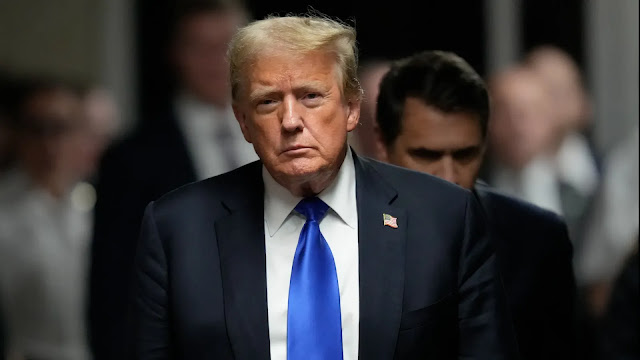President-elect Donald Trump has petitioned the U.S. Supreme Court (SCOTUS) to delay his sentencing in the New York hush-money case, arguing that proceeding as scheduled on Friday, January 10, could jeopardize national security and disrupt the presidential transition process.
The Argument for Delay
In their filing, Trump’s legal team contended that sentencing a president-elect carries “a constitutionally intolerable risk” to the federal government. They cited concerns over national security and the complexities of the presidential transition. They also argued that presidential immunity should shield Trump from the case entirely, warning that allowing the sentencing to proceed sets a dangerous precedent for future presidents.
The petition referenced a landmark 2024 SCOTUS ruling that expanded presidential protections, granting former presidents broad immunity for actions deemed part of their official duties. Trump’s lawyers assert that this precedent should apply to his case and that sentencing him before his inauguration undermines constitutional principles.
The Case Background
The case centers on hush money payments Trump allegedly made to adult film actress Stormy Daniels during his 2016 campaign. In May 2024, a grand jury convicted Trump on 34 felony counts of falsifying business records, linked to efforts to conceal payments intended to influence the election outcome. Legal experts argue these payments may violate campaign finance laws as unreported election expenditures.
Judge Juan Merchan, who presided over the case, has indicated plans to issue an unconditional discharge. This sentence would carry no jail time, fines, or probation, in part to preserve the integrity of the presidential transition process. However, Trump’s legal team insists that even an unconditional felony conviction carries significant consequences, including reputational harm and potential restrictions on future activities.
Judicial Pushback
Judge Merchan rejected Trump’s argument that the case infringes on executive branch authority, stating that the charges relate to private actions outside Trump’s official duties as president. Legal analysts note the historical significance of the case, as Trump could become the first president-elect sentenced as a felon if proceedings go forward.
What Happens Next?
SCOTUS has asked New York prosecutors to respond to Trump’s petition by Thursday morning, creating a narrow window before the Friday deadline. If the justices grant Trump’s request, his sentencing could be delayed indefinitely. Such a delay could have far-reaching implications, as Trump may regain immunity from criminal prosecution once inaugurated.
Legal scholars are closely watching the court’s decision, which is expected as early as Thursday, January 9. The ruling could shape the future scope of presidential immunity, particularly in cases involving actions taken outside official capacities.
Broader Implications
The case highlights the tension between the principles of presidential immunity and the accountability of public officials. Critics argue that granting a stay risks creating a precedent where presidents and president-elects could evade accountability for private actions. Supporters of Trump’s position warn of the potential destabilization to national governance if such cases proceed during critical transition periods.





.jpg)



.png)


